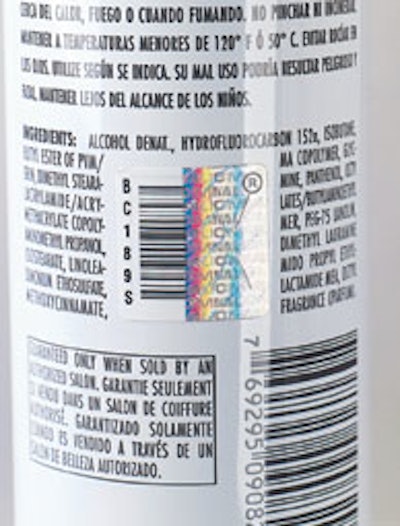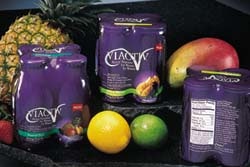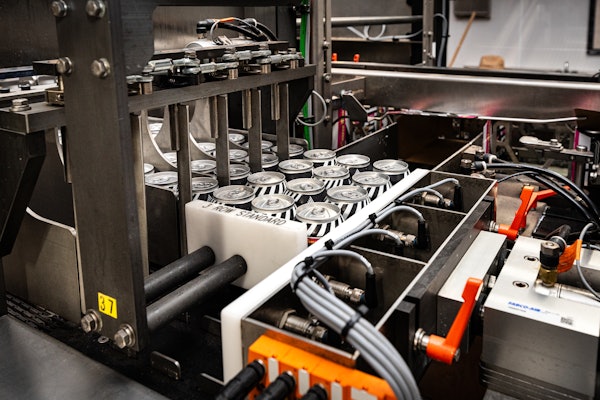It usually gives the consumer a sub-par product that will likely disappoint in its performance or durability.In so doing, it damages the reputation and integrity of the company that holds the rights to the brand. But it also harms the reputation of the retail store, where the consumer purchased the product.
It’s this last fact that should ensure that the retailer stand alongside the brand manufacturer to work hard to rid the marketplace of fake products. But some buyers for retail stores seem to believe they do the consumer a service when they try to subvert the manufacturer’s chosen distribution pattern to try to find “bargains.” Such may be the case in the counterfeit/diversion suit brought by Sebastian Intl. against Albertson’s in Phoenix District Court (see related story, p. 36).
For its part, Sebastian manufactures hair care products specifically for exclusive sale through salons, and it affixes lot and tracking codes to containers so that it can determine which account bought and took delivery of each and every container. This tracking label, using a hologram with serial numbers, is a costly but effective way to guarantee exclusivity to the salons that Sebastian sells through.
And, apparently, the label is so effective that a counterfeiting enterprise didn’t even try to copy it when it sold and then supplied a large quantity of cases of Sebastian Shaper hair spray to Albertson’s. It’s likely the individuals who sold the products to the retailer didn’t bother to explain about the missing holographic label with the tracking number.
Still, whoever was responsible for purchasing the products at Albertson’s should have known about the label, or at the very least should have known that the company or individual selling the products wasn’t affiliated with Sebastian Intl. Nor with any of that company’s distributors. Unless, of course, the salesperson was, in fact, a distributor with genuine Sebastian credentials.
Even if that latter scenario turns out to be true, one must wonder why the purchasing authority at Albertson’s wasn’t suspicious about this line of products being offered for retail sale. But more likely, the selling organization was in fact a diverter, an individual or company that buys from one channel to sell through another. That definition sounds innocuous enough, but it often masks borderline or illegal activities. Few diverters in this gray area are without at least a hint of blemish like a lawsuit or a prosecution; by the same token, relatively few have been convicted.
It’s very obvious that few companies go to the expense and trouble that Sebastian Intl. does to safeguard its normal distribution channels. After all, holographic labels and sequential numbering systems are neither inexpensive nor trouble-free.
Unfortunately, because the litigation is still ongoing, neither side nor their attorneys would comment on the substance of the case. Albertson’s is one of about 20 defendants also named in a Los Angeles counterfeiting suit brought by Sebastian, which alleges a conspiracy and cites about 400ꯠ counterfeit containers having been sold in the U.S.
It’s a tribute to the company and to the efficacy of its products (not to mention the unit sales price) that it would attract what Sebastian believes is a complete network of parties—including several aerosol can contract packagers—to become a party to counterfeiting. Mark Riedel, general counsel at Sebastian, admits that Albertson’s has said it would order a recall on the counterfeit containers, and also said it would not sell the product in the future.
But it didn’t say how it was going to accomplish a recall, when no product code was on the container!
But why would a major retail chain like Albertson’s gamble its reputation—now considerably tarnished by the unproven charges—on a questionable opportunity to sell these products?
Last month, I used this space to discuss e-commerce and how it was changing the face of traditional marketing channels by eliminating several costly steps in the process. As a number of readers pointed out, part of what makes e-commerce products so attractive is the elimination of several taxing bodies, not just the elimination of marketing steps. These readers felt avoidance of sales taxes gave e-commerce an unfair advantage over similar products sold through more traditional sales-tax-charging outlets. This advantage may not remain in force once a new Congress and Administration is elected.
However, when illegal counterfeiters can team up with retail outlets to hoodwink (I love that word!) consumers, retailers are forgetting that genuine manufacturers are as much their partners in commerce as are consumers. I don’t propose to assess guilt or blame or perhaps simple stupidity in Sebastian v Albertson’s. But the fact that no one at the chain headquarters may have investigated this unusual product buy is itself an indictment of sloppy, if not criminal, purchasing practices.


























